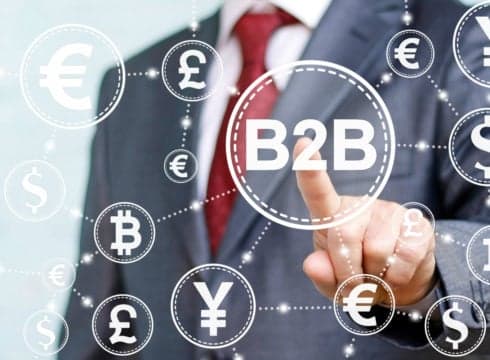Payment organisations need to offer customisable solutions as per business needs
Commercial cards have been gradually gaining traction in B2B payments
Blockchain technology will be leveraged to facilitate fast, secure, low-cost international payment processing services
Inc42 Daily Brief
Stay Ahead With Daily News & Analysis on India’s Tech & Startup Economy
Over the last year, we have seen transformative changes take place in the way India makes or receives payments. Fueled by India’s digital revolution, government policies and a steady influx of fintech players, we seem to be at the forefront of introducing innovative solutions that will ensure that making and receiving payments are quicker, safer and smarter than ever before.
In fact, as per a report by Google Inc. and Boston Consulting Group, India’s digital payments sector will be worth $500 Bn by 2020. Globally too, the trend is extremely encouraging with approximately 726 Bn transactions expected to be made using digital payment modes by 2020, according to a study released by Capgemini and BNP Paribas.
Clearly these are exciting times to evaluate the payments industry as we navigate into 2019; however, if we take a closer look at the market, it’s clear that B2B payments space is where the potential to unlock latent opportunity for growth truly lies.
Why Automation Is Needed In B2B Environment?
Businesses operate in a symbiotic environment, functioning in supply chains or value chains, making them interdependent. There are a huge number of transactions that are taking place every minute between businesses, irrespective of the industry. Add to this volume of transactions, the complexity of managing multiple vendors, credit cycles and risk assessment aspects and we have a mammoth issue waiting to be solved.
Moreover, unlike consumer payments, business transactions are largely governed by contracts, which mean they function mostly on credit. In such scenarios, data-based insights in order to rationalize business decisions and insight into cash flow can be critical tools businesses can use when they create a digital-forward finance function.
In this situation, payment organizations need to offer solutions that can be customized to the needs of the business in order to make it most effective. While we already see cloud-based solutions and pay as you go services being offered; more thought will need to go into how to better serve the market through trends-driven product commoditization and convergence that encourages speed in adoption.
Focus In 2019
Having highlighted the above market scenario, here are some areas wherein B2B payments will need to drive innovation according to me:
Commercial cards: Commercial cards have been gradually gaining traction in B2B payments, especially in areas like employee expense management. Several banks in India have introduced commercial cards for businesses to ensure timeliness in payment processes. However, the commercial card adoption lags due to the friction associated with linking both parties to a network, as well as the fees incurred by suppliers. B2B payment players who can reduce this friction are likely to stay ahead of the curve as cards become the preferred mode of transaction for corporates and SMEs alike.
Blockchain payments: Blockchain technology will be leveraged to facilitate fast, secure, low-cost international payment processing services (and other transactions) through the use of encrypted distributed ledgers that provide trusted real-time verification of transactions without the need for intermediaries such as correspondent banks and clearing houses.
Greater focus on services: Differentiated services or experiences will play an important role in B2B payments going forward. As the market becomes populated with more of the same, the current value of differentiators is likely to change. Competitive advantages like transaction processing speed, convenience, and access will no longer be enough to retain customers, and B2B payments players will have to start evaluating more service driven benchmarks such as a frictionless user experience and interface that is both convenient and accessible. Intuitive and responsive platforms that can be highly customized will become the frontrunners in this crowded space in the coming years.
Leveraging Data: While data privacy is a critical component for any fintech player, for a B2B payments player, being able to intelligently map the data being gathered disparately will be a huge competitive advantage. Leveraging the data to provide intelligent and relevant services to customers as well as improve the customer experience will be business critical for a B2B payments player.
As digital payments become more acceptable in the business environment, solutions that provide ease of use and are intuitive will win favor in the industry. Staying innovative in order to better serve the evolving business customer will be key for digital payments players in the B2B space.
It is therefore imperative that B2B payment players stay on top of trends that may impact their business and harness the power of technology to create products and services that ensure resource and cost saving while providing quality service that places their business customers’ needs at the center.
Key Highlights
Funding Highlights
Investment Highlights
Acquisition Highlights
Financial Highlights
Note: We at Inc42 take our ethics very seriously. More information about it can be found here.


